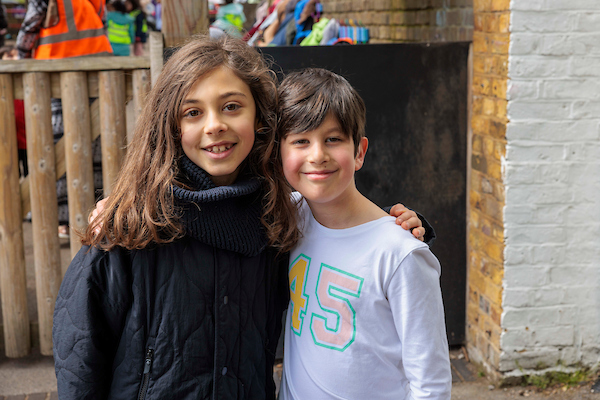Address:
William Patten Primary School
Stoke Newington Church Street
London N16 0NX
Office Manager: Rita Quigley
SENDCo: Caitlin Shaw
William Patten Primary School
Stoke Newington Church Street
London N16 0NX
Office Manager: Rita Quigley
SENDCo: Caitlin Shaw

Intent
In line with the National Curriculum 2014, all schools must provide a curriculum that is broadly based, balanced and meets the needs of all pupils. Under section 78 of the Education Act 2002 and the Academies Act 2010, a PSHE curriculum:
The National Curriculum advises schools to make provision for personal, social, health and economic education (PSHE), drawing on good practice. At William Patten, PSHE is considered across the curriculum and is a fundamental part of the children’s school experience. In addition, the emphasis on PSHE across the work of the school, Personal, Social, Health and Economic Education, is taught explicitly as part of the whole-school approach. We believe that successful PSHE supports children’s learning capacity and this aspect of the school’s work is held in high regard as we believe that it promotes wellbeing and underpins children’s development as people.
To support our aims, the school is a member of the DfE funded PSHE Association. We follow the Jigsaw Programme scheme of work, which holds the PSHE Association Quality Mark. Jigsaw PSHE offers a comprehensive, carefully thought-through Scheme of Work which brings consistency and progression to our children’s learning in this vital curriculum area. Our approach also supports the ‘Personal Development’ and ‘Behaviour and Attitudes’ aspects required under the Ofsted Inspection Framework, as well as significantly contributing to the school’s Safeguarding and Equality Duties, the Government’s British Values agenda and the SMSC (Spiritual, Moral, Social, Cultural) development opportunities provided for our children.
We aim to ensure that all children:
Implementation
Jigsaw covers all areas of PSHE for the primary phase including statutory Relationships and Health Education. The table below gives the learning theme of each of the six Puzzles (units) and these are taught across the school; the learning deepens and broadens every year.
| Term | Puzzle (Unit) | Content |
| Autumn 1: | Being Me in My World | Includes understanding my own identity and how I fit well in the class, school and global community. Jigsaw Charter established. |
| Autumn 2: | Celebrating Difference | Includes anti-bullying (cyber and homophobic bullying included) and understanding |
| Spring 1: | Dreams and Goals | Includes goal-setting, aspirations, who do I want to become and what would I like to do for work and to contribute to society |
| Spring 2: | Healthy Me | Includes drugs and alcohol education, self-esteem and confidence as well as healthy lifestyle choices, sleep, nutrition, rest and exercise |
| Summer 1: | Relationships | Includes understanding friendship, family and other relationships, conflict resolution and communication skills, bereavement and loss |
| Summer 2: | Changing Me | Includes Relationships and Sex Education in the context of coping positively with change |
At William Patten School, PSHE lessons are taught every other week in KS1 and each week in Reception and KS2. This ensures that we are able to teach the PSHE knowledge and skills in a developmental and age-appropriate way. Outcomes are recorded in a class ‘floor book’. Explicit lessons are reinforced and enhanced in many ways which include:
We aim to ‘live’ what is learnt and apply it to everyday situations in the school community.
Class teachers deliver the weekly lessons to their own classes. The school’s ethos, curriculum design and PSHE lesson coverage promote the following:
The school’s celebration of the annual ‘Children’s Mental Health Week’ also raises awareness and compliments the school’s commitment to promoting good mental health.
Impact
The school has established and maintained a positive learning environment where the children have positive relationships with their peers and teachers. The extent to which the school successfully promotes the spiritual, moral, cultural, mental and physical health of pupils at the schools is further evidenced through the school’s recognition by a number of nationally recognised agencies. The school holds the Council for Learning Outside the Classroom’s Quality Mark at Gold standard in recognition for ‘continue and progressive learning outside the classroom’. The school also holds the British Council’s International School Award, for ‘outstanding development of the international dimension in the curriculum’. This recognises the work of the school in promoting global citizenship, which itself is supported through an ongoing collaboration with a partner school in Madrid. With weekly assemblies, we ensure that PSHE remains a constant and relevant part of each child’s education.
We regularly maintain up to date training which the subject co-ordinator disseminates to ensure an approach that is informed by current pedagogy and advice from experts, as well as involving the use of recommended resources.
A full copy of the whole school’s progression documents, informed by the Jigsaw Scheme, and additional information for parents, is available to view on the website.